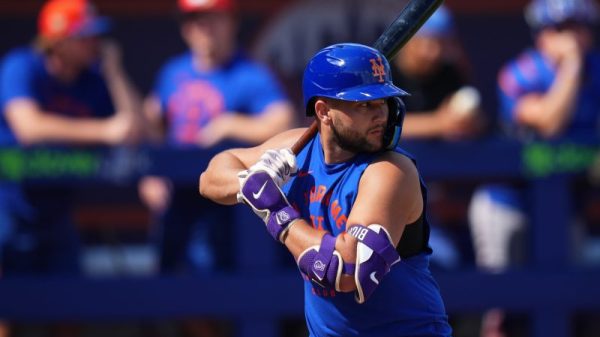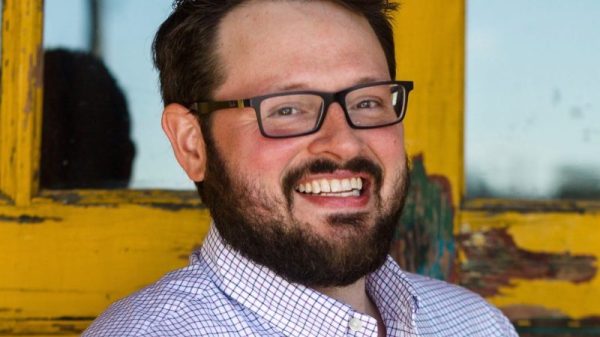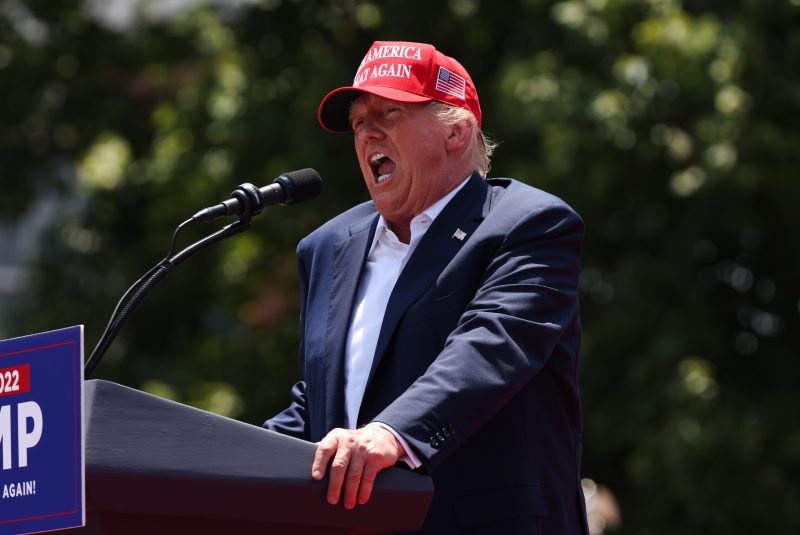The world learned that former president Donald Trump had been identified as the target of another federal criminal probe from Trump himself.
In a statement running to nearly 800 words and shared on the social media platform he runs, Trump claimed that his lawyers had been informed by the office of special counsel Jack Smith that the former president is a target of an investigation centered on efforts to overturn the results of the 2020 presidential election. Trump’s response is relatively light on details, presumably because government prosecutors are understandably keeping their cards close to their chests.
But the response was heavy on rhetoric, presumably because Trump understands that being elected president remains one of his best bets for avoiding a criminal conviction.
His lengthy statement, offered with his idiosyncratic grammar and capitalization, offers a wide-ranging litany of excuses, rationalizations and attacks, few of which actually address what is likely to be the focus of the criminal probe. The approach appears to be the one that Trump has deployed often previously: throw out every possible bit of flotsam to which those inclined to be sympathetic can cling. He only needs people to accept one of his disparagements and deflections to mute their criticism of his actions, so he gives them an enormous number from which to choose.
The lengthy rant is worth parsing closely, though, because it is also replete with misinformation and false claims that demand contextualization. Considering Trump’s putative argument sentence by sentence makes obvious the flimsiness of his defense and the desperation of his response.
Everything after “WOW” is, indeed, one sentence.
Trump begins with a lengthy argument centered on election poll numbers. The heart of his defense, after all, is that he is only being targeted by prosecutors because the powers-that-be fear his reelection. The reality, of course, is that Trump is eager to frame this possible indictment in political terms because, first, he’s already primed his supporters to view the prosecutions in this way and, second, he understands that it aids him politically to do so.
The gap in polling between himself and Florida Gov. Ron DeSantis (R), correctly identified in the section above, widened after his indictment in Manhattan in a case about hush money payments to an adult-film actress.
It is not true, though, that Trump is leading Biden in the polls by a lot. National polling generally shows a close race. (The results of a straw poll conducted at a right-wing event are, of course, meaningless, however precisely offered.)
We can set aside the “deranged” name-calling since Trump goes after Smith a bit later. What’s indicated here, though, is that the likely indictment centers on Trump’s efforts to retain power despite his having lost the 2020 presidential election. This is often framed, as Trump does here, as being centered on the riot at the Capitol on Jan. 6, 2021, but in reality encompasses a wide range of actions, reflected in the disparate group of individuals who’ve already spoken to investigators or the grand jury: efforts to pressure legislators to reject state-level results, the submission of invalid slates of electors, consideration of using presidential power to suggest that fraud had occurred when it didn’t.
Again, Trump is not “dominating” Biden in general election polling by any stretch. Nor is it true that Trump “turned down” Merrick Garland as a Supreme Court justice in any meaningful sense. President Barack Obama had nominated Garland in 2016, with Senate Majority Leader Mitch McConnell (R-Ky.) refusing to consider the nomination and instead leaving a court seat vacant. When Trump took office the following January, he nominated someone from a list of justices he’d presented during the campaign.
The idea here is obvious: Trump wants to imply, first, that Garland is seeking retribution for this snub that didn’t occur and, second, that Trump snubbed him because of Garland’s ethics — but since there was no snub it is necessarily also not true that this “reason” exists.
This is a fascinating line that comes up often. It is, in fact, true that no former president has ever before been identified as the target of a criminal probe into efforts to retain power — because no former president has ever engaged in comparable behavior before! Trump supporters often shrug at everything that happened from Nov. 7, 2020, to Jan. 6, 2021, as unimportant — and then express outrage at Trump facing potential accountability for his actions during that period as though it has no predicate.
Another whopper of a sentence — and more whoppers of untrue claims.
The Justice Department did not “illegally spy on [Trump’s] campaign,” it conducted a validly predicated probe of people associated with his campaign for possible links to Russia. The Justice Department didn’t “attack” Trump with the dossier of unverified reports that was, in fact, funded through a law firm working for Clinton. The Russia investigation began before its investigators knew of the dossier; it was primarily deployed to obtain a warrant against someone who’d already left Trump’s campaign.
The list and the debunkings go on and on. The Mueller “Witch Hunt” is also the “Russia Hoax,” which was not a “hoax.” The 51 intelligence officials “fraud” refers to a letter suggesting that news about Hunter Biden’s laptop released right before the 2020 election had the earmarks of a Russian intelligence operation. It’s intensely inside-baseball stuff, resonant with people who watch a lot of Fox News or spend a lot of time on Truth Social. But again, that’s the point: trigger sympathy from supporters or those inclined to be supportive.
Note that Trump mentions having been impeached twice. The second time, you will recall, was for stoking the false claims about election fraud that led to the Capitol riot. In other words, as he tries to defend himself against another indictment, he’s reminding people that he’s already been held to account for a component of what he’s alleged to have done. He was acquitted in the Senate trials for both impeachments.
Trump seems here to recognize that it’s harder to claim that the federal government’s out to get him when two other indictments — one instantiated in Manhattan and the other likely in Atlanta — are at the local level. So he just implies without credible evidence that the Justice Department is somehow controlling those district attorneys.
This is the essence of the case, that the intent is to affect the election. But there’s an obvious rejoinder here: Why does the special counsel need an additional indictment? Most legal observers seem to think that Smith has Trump dead to rights on his retention of classified documents at Mar-a-Lago. So why another probe? One possibility that Trump would rather not have his supporters entertain is that the government believes Trump broke the law and seeks a criminal indictment as a result.
There is nothing in the Constitution about protesting the results of elections. Trump invokes this idea to suggest that he’s simply carrying on a grand tradition of objections, as demonstrated in the past by the left.
This was a common argument in the days before the Capitol riot, with efforts by Trump supporters to block the counting of electoral votes cast as commensurate with what Democrats had done in years prior. But here Trump is trying to conflate his objections to his loss with less-robust objections from third parties. No one, and particularly no sitting president, has ever deployed an effort to retain power in the manner that Trump did, and it isn’t even close.
Trump slips in an important point here, that he was “fully convinced” that the election was stolen. There was no reason for him to be convinced of that, of course; external analysis and even internal reviews from his campaign team found no evidence the election results were invalid. But legal experts argue that it doesn’t matter anyway, that Trump’s belief that the election was stolen is not a valid shield against criminal liability.
They did not.
Stepping back, one can read this sentence for what it actually points out: The Justice Department focused on the crime that appears to have occurred (Trump’s efforts to retain power) and not the one that didn’t (fraud).
Trump next jumps to disparaging Jack Smith, albeit somewhat confusingly.
Smith, presumably as most prosecutors, has won some prosecutions and lost others. Trump and his allies have pointed to those losses as an indicator that he brings frivolous charges, which is not demonstrably the case.
Trump’s mention of Smith’s family is one of the grimmer components of the efforts to justify the former president’s position. He and his allies have suggested that the purported anti-Trump views of people close to Smith somehow reveal the special counsel’s politics. The practical effect, of course, is to make those people targets of negative attention.
The “Boxes Hoax” and “Lois Lerner IRS scandal” are trigger references for Trump’s base. The former refers to the investigation into Trump’s retention of documents after leaving the White House. The latter is a callback to an incident during the Obama administration that energized the right just as Trump was getting involved in national politics.
Just an endless pastiche of allegations and insinuations. A mess of spaghetti chucked at a wall with crossed fingers.
Only one part of this bears any likely relationship to possible prosecution for his efforts to retain power after 2020: the claims about having made “a perfect phone call made to many lawyers and a secretary of state.” This probably refers to the early-January 2021 call Trump made to officials in Georgia, asking them to “find” enough votes for him to win the state. By then the results had been recounted and rechecked, the totals certified, the slate of electors sent to Washington. There was no evidence, despite two months of looking for fraud. But Trump still tried to lean on the state to simply overturn Trump’s loss.
There was an enormous protest over the call. But Trump is deferring to his response to his 2019 impeachment, claiming that a questionable phone call he made was, in fact, “perfect.” This has long been the Trump playbook: never admit even an inch of error.
It hasn’t. Trump faced criticism from the moment he launched his candidacy in June 2015, in part because he was becoming a presidential candidate and in part because, from the first minutes of his campaign, he made verifiably false claims. What Trump wants to do, though, is frame the investigations as being about him politically and not his actions, to frame this as a political fight that demands political support.
D.C. is an appropriate venue for an indictment on election-related charges because it is where Trump tried to overturn the election results. The idea that the grand jury was convened in D.C. in response to some recent speech Trump gave about the city is undermined slightly by its having been convened months ago.
At long last, Trump’s rant then concludes.
Again, the distillation of his argument. The Trump view (or the view he wants to present, anyway) is that everything he did was fair game if not typical. The response, then, becomes an abuse of power.
It is much closer to reality to understand that this is backward. Trump abused his position to try to retain power despite being rejected by voters. That triggered a very typical response from prosecutors: an investigation and, it seems, a possible future indictment.



























